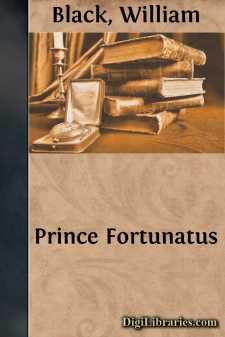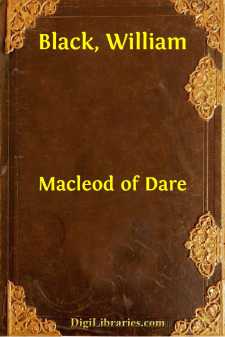Categories
- Antiques & Collectibles 13
- Architecture 36
- Art 48
- Bibles 22
- Biography & Autobiography 813
- Body, Mind & Spirit 142
- Business & Economics 28
- Children's Books 14
- Children's Fiction 11
- Computers 4
- Cooking 94
- Crafts & Hobbies 4
- Drama 346
- Education 46
- Family & Relationships 57
- Fiction 11828
- Games 19
- Gardening 17
- Health & Fitness 34
- History 1377
- House & Home 1
- Humor 147
- Juvenile Fiction 1873
- Juvenile Nonfiction 202
- Language Arts & Disciplines 88
- Law 16
- Literary Collections 686
- Literary Criticism 179
- Mathematics 13
- Medical 41
- Music 40
- Nature 179
- Non-Classifiable 1768
- Performing Arts 7
- Periodicals 1453
- Philosophy 64
- Photography 2
- Poetry 896
- Political Science 203
- Psychology 42
- Reference 154
- Religion 513
- Science 126
- Self-Help 84
- Social Science 81
- Sports & Recreation 34
- Study Aids 3
- Technology & Engineering 59
- Transportation 23
- Travel 463
- True Crime 29
Sunrise
by: William Black
Description:
Excerpt
CHAPTER I.
A FIRST INTERVIEW.
One chilly afternoon in February, while as yet the London season had not quite begun, though the streets were busy enough, an open barouche was being rapidly driven along Piccadilly in the direction of Coventry Street; and its two occupants, despite the dull roar of vehicles around them, seemed to be engaged in eager conversation. One of these two was a tall, handsome, muscular-looking man of about thirty, with a sun-tanned face, piercing gray eyes, and a reddish-brown beard cropped in the foreign fashion; the other, half hidden among the voluminous furs of the carriage, was a pale, humpbacked lad, with a fine, expressive, intellectual face, and large, animated, almost woman-like eyes. The former was George Brand, of Brand Beeches, Bucks, a bachelor unattached, and a person of no particular occupation, except that he had tumbled about the world a good deal, surveying mankind with more or less of interest or indifference. His companion and friend, the bright-eyed, beautiful-faced, humpbacked lad, was Ernest Francis D'Agincourt, thirteenth Baron Evelyn.
The discussion was warm, though the elder of the two friends spoke deprecatingly, at times even scornfully.
"I know what is behind all that," he said. "They are making a dupe of you, Evelyn. A parcel of miserable Leicester Square conspirators, plundering the working-man of all countries of his small savings, and humbugging him with promises of twopenny-halfpenny revolutions! That is not the sort of thing for you to mix in. It is not English, all that dagger and dark-lantern business, even if it were real; but when it is only theatrical—when they are only stage daggers—when the wretched creatures who mouth about assassination and revolution are only swaggering for half-pence—bah! What part do you propose to play?"
"I tell you it has nothing to do with daggers and dark lanterns," said the other with even greater warmth. "Why will you run your head against a windmill? Why must you see farther into a mile-stone than anybody else? I wonder, with all your travelling, you have not got rid of some of that detestable English prejudice and suspicion. I tell you that when I am allowed, even as an outsider, to see something of this vast organization for the defence of the oppressed, for the protection of the weak, the vindication of the injured, in every country throughout the globe—when I see the splendid possibilities before it—when I find that even a useless fellow like myself may do some little thing to lessen the mighty mass of injustice and wrong in the world—well, I am not going to stop to see that every one of my associates is of pure English birth, with a brother-in-law on the Bench, and an uncle in the House of Lords. I am glad enough to have something to do that is worth doing; something to believe in; something to hope for. You—what do you believe in? What is there in heaven or earth that you believe in?"
"Suppose I say that I believe in you, Evelyn?" said his friend, quite good-naturedly; "and some day, when you can convince me that your newly discovered faith is all right, you may find me becoming your meek disciple, and even your apostle. But I shall want something more than Union speeches, you know."
By this time the carriage had passed along Coventry Street, turned into Prince's Street, and been pulled up opposite a commonplace-looking house in that distinctly dingy thoroughfare, Lisle Street, Soho.
"Not quite Leicester Square, but near enough to serve," said Brand, with a contemptuous laugh, as he got out of the barouche, and then, with the greatest of care and gentleness, assisted his companion to alight.
They crossed the pavement and rang a bell. Almost instantly the door was opened by a stout, yellow-haired, blear-eyed old man, who wore a huge overcoat adorned with masses of shabby fur, and who carried a small lamp in his hand, for the afternoon had grown to dusk. The two visitors were evidently expected. Having given the younger of them a deeply respectful greeting in German, the fur-coated old gentleman shut the door after them, and proceeded to show the way up a flight of narrow and not particularly clean wooden stairs.
"Conspiracy doesn't seem to pay," remarked George Brand, half to himself.
On the landing they were confronted by a number of doors, one of which the old German threw open. They entered a large, plainly furnished, well-lit room, looking pretty much like a merchant's office, though the walls were mostly hung with maps and plans of foreign cities. Brand looked round with a supercilious air. All his pleasant and friendly manner had gone. He was evidently determined to make himself as desperately disagreeable as an Englishman can make himself when introduced to a foreigner whom he suspects....







